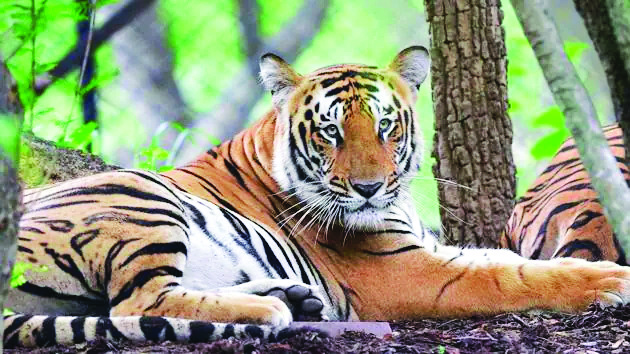Maintaining viable tiger population India’s goal for next 50 years: PT head

India aims to sustain a viable tiger population based on a scientifically calculated carrying capacity of habitats while maintaining a balance between development and wildlife conservation, the head of Project Tiger, which completed 50 years on April 1, said on Wednesday. Additional Director General of Forests S P Yadav also said though tiger poaching has substantially reduced due to better technology and protection mechanisms, it is still the biggest threat to the big cats besides habitat fragmentation and degradation.
India launched Project Tiger on April 1, 1973, to promote tiger conservation. Initially, it covered nine tiger reserves spread over 18,278 sq km. At present, there are 53 tiger reserves spanning more than 75,000 sq km (approximately 2.4 per cent of the country’s geographical area). The country has around 3,000 tigers, more than 70 per cent of the global wild tiger population, and the number is increasing at a rate of 6 per cent per year. Prime Minister Narendra Modi will release the latest tiger census data at a mega event to mark the completion of 50 years of Project Tiger in Karnataka’s Mysuru on April 9. He will also release the government’s vision for tiger conservation during ‘Amrit Kaal’.
“There has been very significant progress... There is hardly any parallel in the world of a scheme of this scale and magnitude that has been so successful,” Yadav said.
“The goal would be to have a viable and sustainable tiger population in tiger habitats based on a scientifically calculated carrying capacity. I’m not putting a number (to it) as we cannot increase the tiger population of the country at the same pace because that will result in an increase in conflict with human beings,” he said when asked about Project Tiger’s objective for the next 50 years.
Yadav said the government is focusing on bringing potential tiger habitats under the conservation programme and actively managing tiger reserves based on their carrying capacity.



